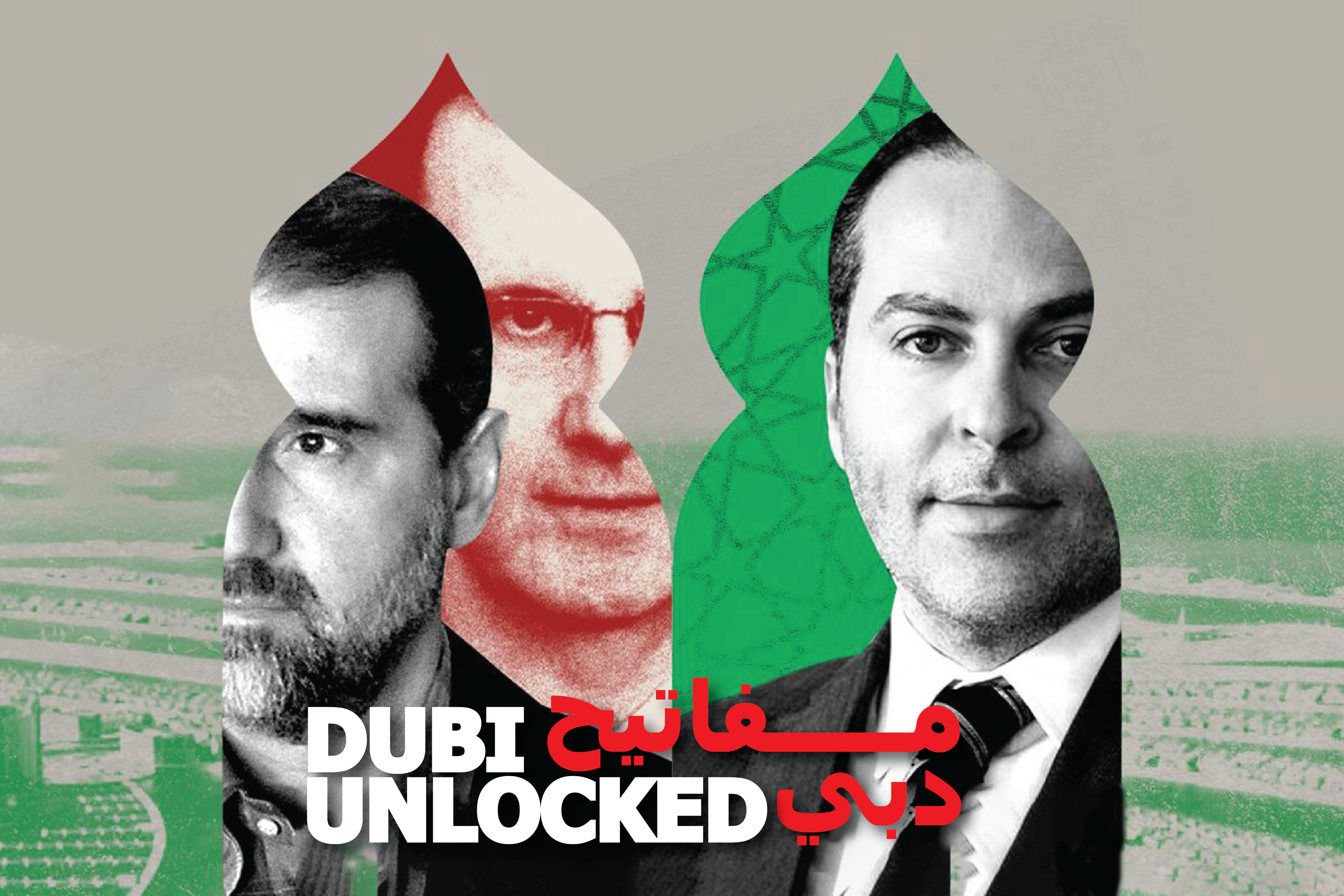The “Dubai Unlocked” investigative reports reveal that US sanctions have not prevented prominent figures connected to the Syrian regime from acquiring and investing in the small emirate, raising questions about the perks enjoyed by regime insiders there. The project’s documents contain details of properties owned by Syrians from the financial and familial circle of Syrian President Bashar al-Assad, including: his cousins Rami and Ihab Makhlouf, businessman brothers Samer and Amer Foz, Rania al-Dabas, the wife of Syrian businessman Mohammed Hamcho, and others.
Many Syrians have lost their homes, properties, and investments due to the Syrian war. Furthermore, according to the UN Refugee Agency (UNHCR), over 753,000 refugees were in need of resettlement in 2024. At the same time, businessmen associated with the Syrian regime have found a safe haven for themselves in Dubai, avoiding American and European sanctions, which did not stop the United Arab Emirates (UAE) from allowing the businessmen to own and/or control luxurious properties in projects like the Palm Jumeirah, away from the eyes of the US Treasury and sanction monitoring offices, under the principle of “Business is Business.”
Among these businessmen are the well-known brothers in Syria: Rami and Ihab Makhlouf, Samer and Amer Foz, and Mudalal and Imad Khoury.
Why Dubai?
When former US President Donald Trump signed the Caesar Act, following the approval of the US House of Representatives on December 17, 2019, to tighten American sanctions on the Syrian regime and prevent any financial or technical support to it, the legislation was supposed to limit the financial growth of the regime and curb the businessmen and elites benefiting from the Syrian war. Meanwhile, they accumulated fortunes worth millions of dollars in cash, real estate assets, and real and fake companies throughout the years of the Syrian war.
However, documents from the “Dubai Unlocked” revealed that these sanctions did not prevent “regime men” from owning and investing in properties in Dubai, raising questions about the Due Diligence process followed by authorities in Dubai specifically, regarding the risks of money laundering and compliance with European and American sanctions regulations.
“Dubai Unlocked” is a cross-border investigative project led by the Organized Crime and Corruption Reporting Project (OCCRP) and the Norwegian financial news site E24, with the participation of 74 media outlets from 58 countries around the world, including the Syrian Unit for Investigative Journalism (SIRAJ) and its partner site, Daraj.
The project includes leaked documents revealing information about hundreds of thousands of properties in Dubai and their ownership, specifically in 2020 and 2022. The data was obtained from the Center for Advanced Defense Studies (C4ADS), a non-profit organization based in Washington, DC, researching international crimes and conflicts. The data was subsequently shared with the OCCRP and E24 project.
The project’s data, taken from more than 100 datasets, mostly from the Dubai Land Department, in addition to state-owned real estate companies, includes the listed owner’s name for each property, along with other identifying information. The dataset reviewed by journalists includes owners’ names as written in passports, passport data, identity cards, contact information, and key information about the properties.
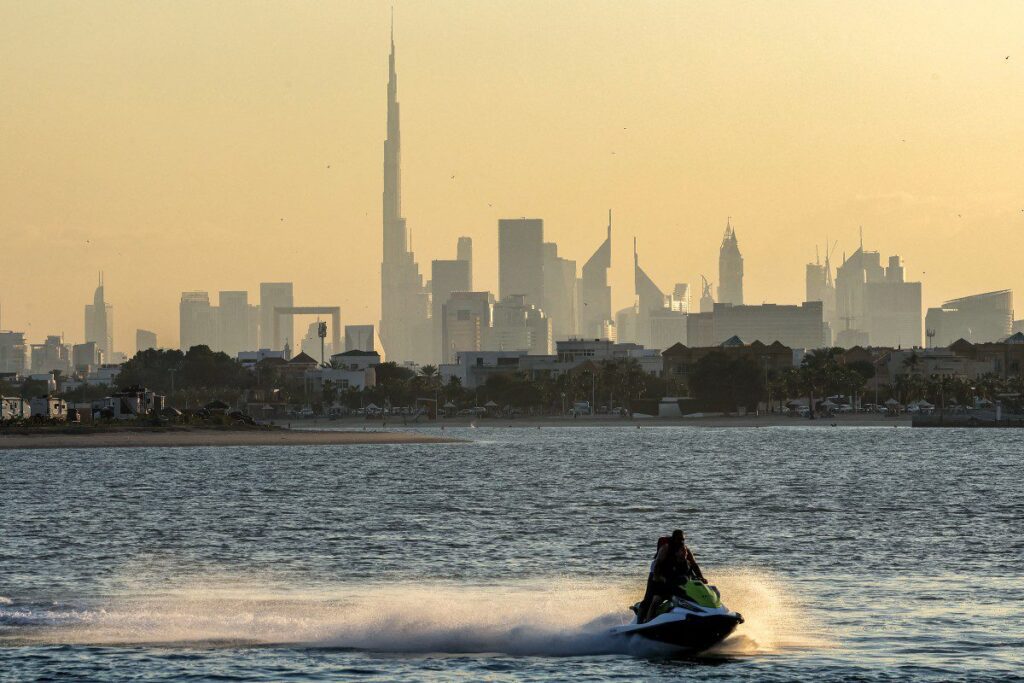
Over several months, journalists participating in this international project used the documents as a starting point to discover the foreign real estate ownership scene in Dubai, and to verify the identities of the names and figures listed in the data, specifically those listed on international sanctions lists or classified as politically exposed persons (PEPs).
The project documents include details of properties owned by Syrians from the financial and familial circle of Syrian President Bashar al-Assad, including his cousins Rami and Ihab Makhlouf, businessmen brothers Samer and Amer Foz, and Rania al-Dabas, the wife of Syrian businessman Mohammed Hamsho, who is close to Maher al-Assad, commander of the Fourth Division in the Syrian army, among others.
The Makhlouf brothers each own a luxurious villa in Dubai, with each villa covering a space of one dunam and 220 square meters, both located in the Jumeirah Palm area, an artificial archipelago known for its luxury properties. Samer Foz, a Syrian businessman active during the Syrian war and whose name appeared on the US and European sanctions lists, controls and owns three real estate assets in Dubai, including two units in the Platinum Tower in the Al Thanyah Fifth area.
In an interview with the investigative team, Karam Shaar, Manager of the Syria Program at the Observatory for Political and Economic Networks, said: “Real estate investment in Dubai is guaranteed compared to investment in monetary instruments or any other field. In the Syrian case, there is another benefit, as the ease of movement between Syria and the UAE is a factor for the flow of Syrian money into Emirati real estate. The UAE has become the number one destination for Syrian investors after Lebanon, which was the financial lung of the Syrian regime, was affected, especially after the Beirut port explosion in 2020.”
According to official Emirati statements, Syria occupies an advanced position in the trade relations between the two countries, as the UAE accounts for more than 14 percent of Syria’s foreign trade. The non-oil trade between the two countries reached about 2.6 billion dirhams (705 million US dollars) in 2020, while reaching about 1 billion dirhams (250 million US dollars) in the first half of 2021.
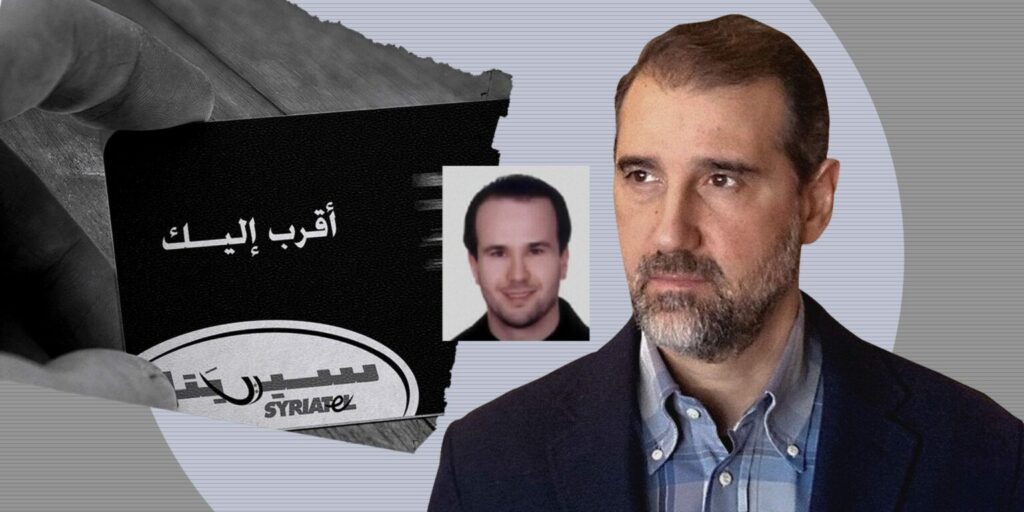
Syrian Money in Dubai
Until 2020, while about 90 percent of Syria’s population lived below the poverty line of two dollars a day, the names of businessmen and prominent figures connected to the Syrian regime’s center were appearing in Dubai’s real estate ownership records, after transferring money and investing in luxurious real estate there, as shown by the real estate ownership records and this investigative report.
The interests of these networks intersected in Dubai as a global financial center, in addition to the financial facilities and lower taxes offered by the emirate in its quest to compete for investments, says one Syrian economic expert.
Until the end of 2019, the value of Syrian direct investment in the UAE exceeded 1.5 billion dirhams (470 million US dollars), according to the Emirati Minister of Economy, Abdullah bin Touq Al Marri, but it is not known whether this figure includes real estate assets owned by Syrians in the country or not.
Owning property or purchasing real estate anywhere is not a violation or evidence of committing any violation, but rather a type of investment provided by any country within its laws, and it is preferred by many due to the high levels of security provided by investment in real estate assets. However, achieving the public interest requires answering questions such as: Who is buying this property? What is the source of the funds? And how is this done smoothly without conflicting with the European and American sanctions imposed on some buyers, whom it is prohibited to deal with financially for the public interest?
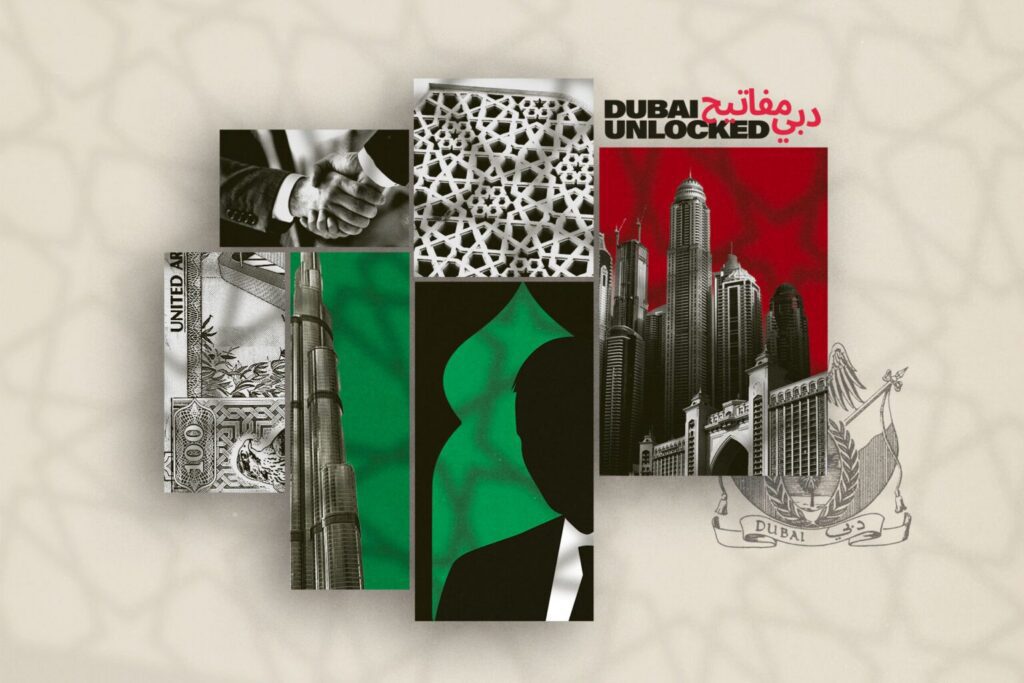
In fact, 3,716 Syrian investors and property owners –who invested their money in 5,392 properties in Dubai worth $1.8 billion– were identified by journalists on the 2022 ownership list.
Amongst these individuals, the investigative team traced real estate assets of 10 senior businessmen and a woman in the Assad regime’s economic circle, all of whom are on the US and European sanctions list. These individuals transferred money to Dubai and bought real estate assets. According to “Dubai Unlocked” documents, these individuals make up the controlling parties of about 25 properties in luxury areas in Dubai, valued at approximately $50 million, according to the European Union tax observatory and the Norwegian Center for Tax Research (Skatteforsk).
After analyzing real estate data, economists from the EU tax observatory and Skatteforsk estimated that the total foreign ownership of residential properties in Dubai amounted to about $160 billion in 2022, including properties under construction.
The analysis is based on property prices in Dubai in 2022 and does not take into account the subsequent rise in property prices there, which increased by more than 25 percent over two years, according to a report published by Deloitte, summarized in the Global Real Estate Guide and the Housing Index issued by the Dubai Land Department.
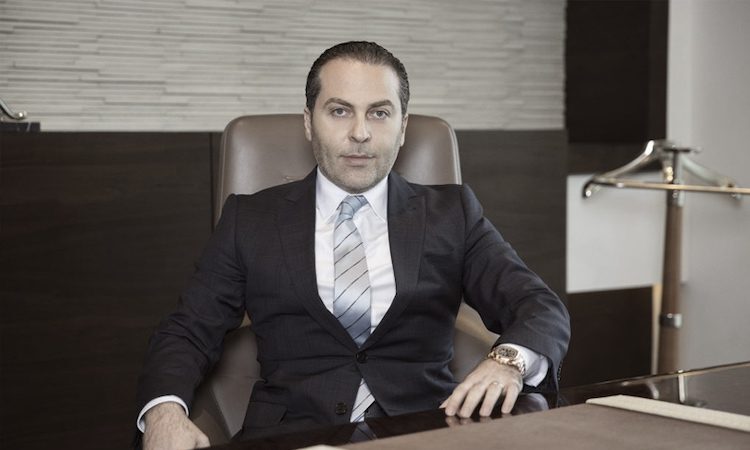
The Foz Brothers… and Platinum Tower Dubai
Samer Foz’s name was widely mentioned in the Syrian business world during the Syrian war, and continues to be so today. The United States imposed sanctions on Foz in 2019, considering him to have “benefited from the atrocities of the Syrian conflict in a profit-making enterprise.” In return, the man was bolstering his financial and economic empire and receiving help for it from neighboring countries. Furthermore in 2018, he acquired Lebanese citizenship.
Foz owns three companies in Lebanon alone, the newest of which is Solid 1 Offshore, with his brother Amer Foz as a partner in all three companies.
Samer Foz owned three real estate assets in Dubai, including two units in the Platinum Tower in the Thanyah Fifth area and a property in the Thanya Fourth area. The financial value of one of the Platinum properties is estimated at around $627,000, while the estimated value of the third property is about $576,000. Foz also owns a commercial land property in the Thanyah Fourth area.
His brother Amer, 46, owns interests and businesses in various sectors in the Syrian economy (within regime-controlled areas), including Aman Damascus Holding Company, which allows him to trade and invest in Syria. He has been on the European sanctions list since February 17, 2020, along with seven other businessmen and two Syrian companies for supporting the Syrian regime. Property records show that he still owns a Signature villa in Palm Island in Jumeirah, with an estimated value of around $17 million.
The documents show that he also owned two properties in the Thanyah Fourth area in the form of villas, with their estimated values around $2 million and $1.9 million, respectively.
The US Treasury Department’s Office of Foreign Assets Control accused him and his brother, along with another individual and an entity, of owning and managing stakes in an international network that supports the Assad regime. However, property records show that he owns these properties in Dubai.
The US Treasury Department did not respond to questions sent by the project’s investigative team about sanction violations and the due diligence that countries should adopt to avoid sanctions themselves.
The Foz brothers did not respond to the investigative team’s requests for comment until the publication of this investigation.
Andreas Økland, a postdoctoral fellow in the School of Economics and Business at the Norwegian University of Life Sciences, said that “According to leaks in 2022 and our estimates, foreigners owned at least 198,000 residential properties in Dubai, valued at over $90 billion in the same year.”
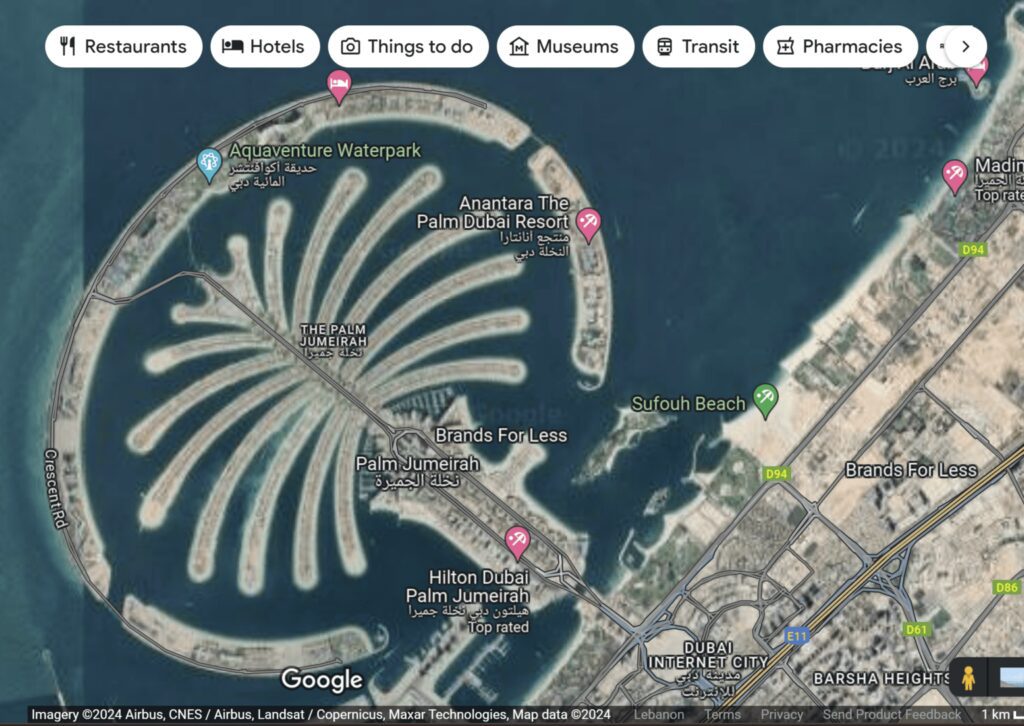
The Makhlouf Brothers… and Palm Jumeirah
It appears that the recent dispute between the Syrian regime and Rami Makhlouf, one of its most important financiers over the past twenty years since Bashar al-Assad took power after his father Hafez al-Assad’s death in 2000, has not yet affected his extensive ownership and shares around the world, including a massive financial empire inside and outside Syria, despite sanctions, as revealed by property records in Dubai.
Rami Makhlouf is listed as the owner of three properties in Palm Jumeirah, including a luxurious villa covering an area of approximately 1,244 square meters (one dunam and 244 square meters), with an estimated value of about $8 million.
In recent years, Makhlouf has become the subject of much discussion and media coverage after disputes arose between him and Bashar al-Assad and his wife Asma al-Assad. These disputes gradually reduced Makhlouf’s influence within the Syrian regime, and he was stripped of his ownership in Syriatel Mobile Telecom, the largest telecommunications company in Syria, in favor of an emerging class of businessmen led by Asma al-Assad.
Rami Makhlouf also owns a residential apartment in the AL DABAS building on Palm Jumeirah Island, with an estimated value of $1.5 million.
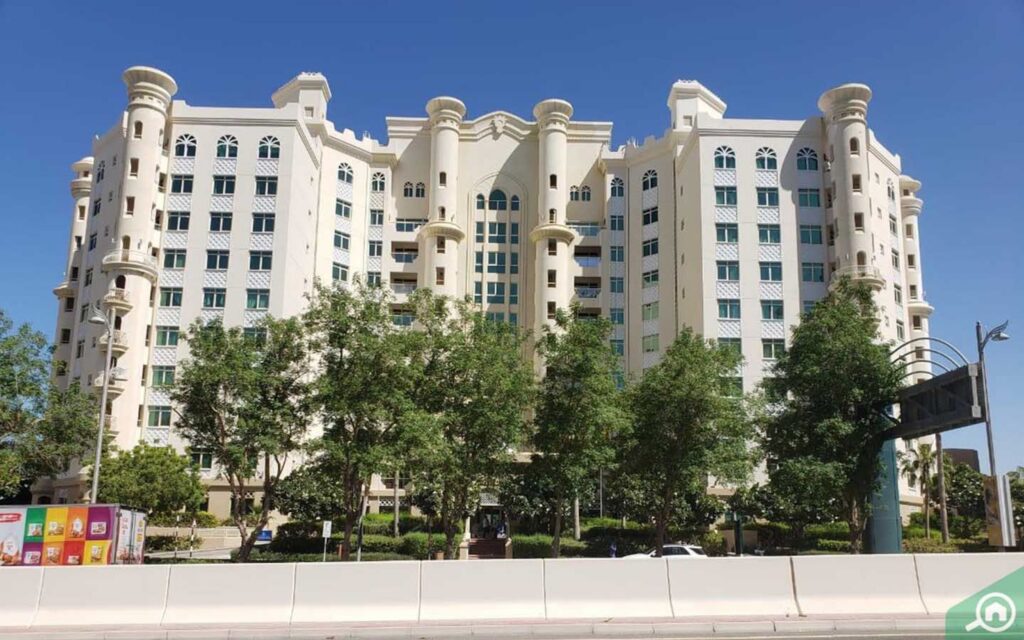
Not too far from this luxurious building, lies another apartment owned by Makhlouf within the Abu Keibal building in Palm Island, which is estimated to be valued at around one million US dollars.
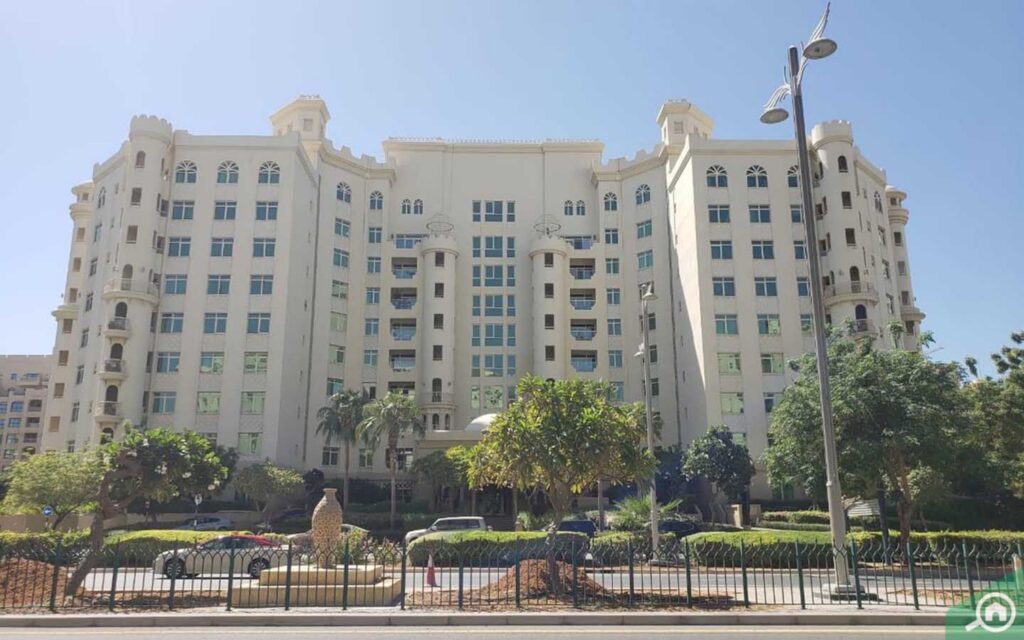
Ehab, on the other hand, owned a luxurious villa in Palm Jumeirah, with its value estimated around 8 million US dollars.
“Despite the UAE’s stance during the early years of the Syrian crisis and its rift with the Syrian regime, the Makhlouf family continued their business smoothly. The elite affiliated with the Syrian regime made Dubai the base for their business and networks,” says Ayman Aldassouky, a researcher at the Omran Center for Strategic Studies.
He adds, “There was a blind eye being turned, and it served as a backdoor for communication with the regime through these networks and businessmen…Bushra al-Assad, Bashar’s sister, was residing in Dubai after the assassination of her husband, Assef Shawkat… Dubai was essentially a key hub for the regime’s elite.”
The Makhlouf brothers also did not respond to the investigative team’s request for comment.
Real Estate in Family Networks
Dubai, in particular, and the UAE in general, are heading towards competitiveness in registering and launching businesses, a legitimate economic advantage that attracts investments to the country. However, this strategy and the speed in attracting money to the UAE through various means, including real estate, have drawbacks and loopholes, according to economic experts.
The name Rania al-Dabas, a Syrian businesswoman and the wife of businessman Mohammad Hamcho on the US sanctions list under the Caesar Act of 2020, is mentioned as the current owner of an apartment in the DAMAC TOWERS building in the Business Bay area, ith its value estimated at $621,000.
Meanwhile, Ahmad Saber Hamcho, the brother of prominent businessman Mohammad Hamsho, was identified as the controlling entity for two properties in the Al Hebiah Third area.
Haid Haid, a senior researcher at the Royal Chatham House Institute in the UK, explains the reason behind these family networks’ tendency to own properties in Dubai, similar to other cities in the Arab world and globally: “Historically, Dubai has been a safe place for investments and property purchases for businessmen affiliated with the Syrian regime and Hezbollah. These businessmen have had two main goals: first, money laundering, as those with illicit funds try to hide their sources by buying and reselling properties repeatedly, making it difficult to trace the origins of these funds, which turn into luxurious properties that appear clean. And the second goal is real estate investment, as buying properties is considered a successful investment in the Arab region. However, the problem lies in banks and real estate offices dealing with individuals punished legally, as they could face sanctions if dealt with.”
The US Treasury Department stated that the Hamcho family “has interests in almost all sectors of the Syrian economy,and Mohammad Hamcho acted as a front and a close partner to Maher al-Assad, who leads the Fourth Armored Division in the Syrian army.”
Young Ahmad Hamcho serves as the Vice President of the Board of Directors of the International Chamber of Commerce in Syria, and is a partner in the companies Saf Al-Sham and Jupiter for Investments alongside Rania al-Dabas.
While al-Dabas and Hamcho did not respond to the investigative team’s questions, a Syrian economic expert explains that “Syrian businessmen using their family networks, including their wives and children, to register properties, is considered a strategy aimed at avoiding international sanctions.”
He says, “This approach allows business networks and the networks of the Syrian regime and Hezbollah to breathe, with the aim of maintaining the stability of the Syrian regime and preventing its collapse.”
In this context, investing in real estate in Dubai is considered a safe haven, as Syrian businessmen can register properties in the names of their wives and children to avoid risks and protect their assets.
Away from the Impacts of Sanctions… the Khoury Brothers’ Real Estate
Mudallal Khoury, a Syrian-Russian businessman, moved to Russia in the early 1970s, where he worked on building a complex network of banks, financial institutions, and external entities after the collapse of the Soviet Union. Khoury used this network in his business, leading to his inclusion on the European and American sanctions lists for facilitating activities on behalf of oppressive regimes like the Syrian regime.
Away from Syria and the financial entanglements across borders with Moscow, property ownership records in Dubai show that Khoury was the controlling entity for a property in The Matrix building in the Al Hebiah Fourth area, alongside a property in the Metro Central building in the Al Thanyah First area. His brother, Imad Khoury, was also the controlling entity of a residential apartment in The Matrix building in the Al Hebiah Fourth area.
The Khoury brothers also did not respond to the investigative team’s request for comment on property ownership and purchase operations, and whether they were declared to the Syrian or Russian authorities.
According to the US Treasury Department, Mudallal Khoury has been involved in financial transactions with the Assad regime since 1994, and Khoury used his complex network to support and finance the Assad regime after the start of the Syrian revolution in 2011.
In 2014, the Assad family’s close circle transferred money from Syria and invested part of it in purchasing offices and properties worth $40 million.
Investigations indicate that Khoury’s assistance to the Syrian regime included supporting the purchase of fuel, printing banknotes, and providing front companies spanning between Cyprus and the British Virgin Islands, which the Assad regime used in its programs for chemical and ballistic weapons.
The Secrecy in Skyscrapers
In recent years, Emirati authorities have tightened regulations related to combating money laundering, especially after the Financial Action Task Force (FATF), the international governmental body for monitoring money laundering, added the UAE to its “gray list” in 2022 due to its failure to effectively combat the flow of illicit funds. After efforts to remove its name from the list, Emirati authorities received good news in February: FATF praised the UAE for its “significant progress” and removed it from further scrutiny, according to the OCCRP investigation on the project.
Within this context, the Emirati Embassy in the UK told The Times, partners in the “Dubai Unlocked” that “the UAE is playingits role in protecting the integrity of the global financial system very seriously. In February, the Financial Action Task Force (FATF), the international standard-setting body for combating money laundering, praised the significant progress made by the UAE in continuing to pursue global criminals. The UAE is cooperating closely with international partners to hinder and deter all forms of illicit financing. The UAE is committed to continuing these efforts and measures today and in the long-term future, more than ever before.”
How to Buy and Invest in Real Estate?
For businessmen affiliated with the Syrian regime, when it comes to linking money and business with the global financial system, these networks resort to other outlets, such as Dubai, to facilitate the transfer of funds, avoid restrictions and obstacles, and invest in real estate. This is especially the case after Lebanon was a vital financial center for passing what the Damascus regime needs in light of US sanctions and the siege on Syria since the outbreak of the revolution and arguably since the 1980s as well.
These individuals previously relied on Lebanon to conduct their business, much of which is conducted using cash due to the banking sector’s vulnerability to sanctions and the paralysis it has experienced since 2019, as well as the Beirut port explosion in August 2020.
“However, it appears that the Syrian regime benefits from the same financial network, which facilitates the transfer and movement between different financial centers, in an unnoticeable and difficult-to-track manner,” says researcher Ayman Aldassouky.
We wanted to know how someone from outside the UAE (even if they are sanctioned by the US Treasury or the European Union) can buy real estate in Dubai, if they have the necessary financial means, regardless of their nationality or current place of residence.
The real estate agent explained that “Bitcoin can be used to buy any property in Dubai, whether it’s an apartment or a villa,” and advised us that if that isn’t possible, to “transfer cash from Damascus to Dubai through exchange offices, and deliver it directly to the real estate office or property owner in Dubai,” emphasizing that “there are no legal concerns regarding the source of these funds,” and stressing that “there are no obstacles related to anti-money laundering in this process.”
Within the CAYAN TOWER skyscraper in the Dubai Marina area, which rises 306 meters in the city center, Syrian businessman Ammar Madhat Sharif, sanctioned by the United States and the European Union, owns a property (an apartment) in the Dubai Marina area.
Sharif is a prominent Syrian businessman active in the banking, insurance, and hospitality sectors, a founding partner of Byblos Bank Syria, a major shareholder in Unlimited Hospitality Ltd, and a board member of Solidarity Alliance and Al-Aqeelah Takaful Insurance, both insurance companies.
The European Union imposed sanctions on Sharif in 2016 for his cooperation with Rami Makhlouf, the cousin of Syrian President Bashar al-Assad.
According to the Paradise Papers project by the International Consortium of Investigative Journalists (ICIJ), Sharif owns a stake in the Global Exchange Group in Syria and has a parallel financial partnership in Lebanon with Rami Makhlouf through Rock Invest (registered in 2002).
Sharif did not respond to the investigation team’s requests for comment on ownership, nor did he provide any other information related to payment processes, financial transfers, or the source of funds that enabled him to purchase the property.
Dubai Real Estate… A Lifeline
Nader Qalei, a Syrian businessman known for his relationship and partnership with Rami Makhlouf, had his name mentioned in the Caesar Act sanctions imposed by the United States in June 2020.
Before 2011, his activities were prominent in Syria in the telecommunications and banking sectors, where he entered into strategic partnerships with Rami Makhlouf through Sham Holding in 2007, and as a member of the board of directors of Zbeideh Qalei and Zbeideh Qalai for Real Estate Development, among others.
The man controlled six properties (apartments) in the Dubai Marina area, within the Bahar 2 building.
Nader Qalei passed away at the age of 58 due to complications from the coronavirus, according to his family’s announcement on February 2, 2021.
His family did not respond to the investigation team’s requests for comment and clarification on the ownership of the properties and how the purchase transactions were conducted.
Luxury real estate investment seems to have been a lifeline for the economic elite of the Syrian regime to preserve the value of the money they earn, despite the ongoing Syrian conflict and the lack of a political solution. Will further sanctions prevent them from doing so?
Previously, US sanctions were imposed on Syrian businessmen affiliated with the regime who have businesses in the UAE, but despite the sanctions, real estate investment in Dubai continued because “Syrian businessmen affiliated with the regime believe that legal pursuit, if the sources of funding are illegal, may be nonexistent in Dubai,” says Karam Shaar.
